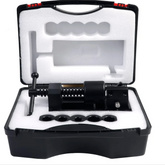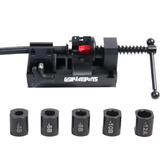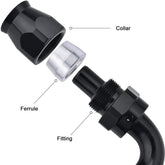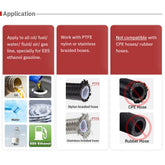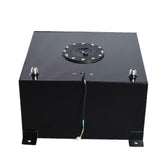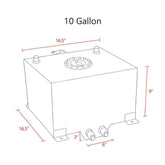What are front struts?
Among the most important parts of the front suspension of your car are the front struts. The front axle's major function of the struts is to support it and enable easy up-and-down movement. The front struts of a car also assist in maintaining tire contact with the road, which is crucial for safety. Usually, they are found next to or beneath each wheel well. They resemble lengthy metal rods and are often held up by springs on both ends. Regarding that spring, front struts and coil springs are frequently combined together to give extra support for large loads or when driving through unpaved areas. We will discuss struts and how they work, as well as typical issues that may occur with these parts.
Shocks vs. struts
Shocks are necessary, but they just govern the amount of force drivers feel when they move over bumps, which smooths out the ride. Additionally, shock absorbers reduce the front of the car from dipping during braking and transferring weight forward. They are independent, stand-alone parts that work well with coils, springs, or bars. Compared to struts, they are typically less expensive.
Although a car can have both front and rear shock absorbers, front struts are more common in newer cars. Front struts allow the front of a vehicle to be raised or lowered and guide the wheels while keeping them on the ground and preventing them from bouncing up. Unlike shocks, which are attached to the bottom of the chassis at the front end of most cars, struts are a structural component of the vehicle. Struts are better suited for lighter cars, whereas shocks are more frequently used in big vehicles like trucks.
Why Front Struts Are So Important
An essential component of your car's suspension system are the front struts. They make sure your ride is stable and smooth by absorbing the shocks and vibrations from the road. A properly operating strut system improves comfort and helps provide a safer driving environment.
The strut assembly is an intricate component consisting of multiple vital pieces. The assembly's fundamental component, the shock absorber, lessens the impact of uneven roads. The coil spring, which bears the weight of your car and keeps it off the ground, is located around this.
The strut mount attaches the strut assembly to your car. It permits a variety of motion in addition to being a connector. This flexibility is essential for the suspension to react to changing road conditions and for efficient steering.
The strut bearing is another essential part. It makes steering operations smoother by reducing friction between the strut and its mount. Additionally, the lifespan of the complete strut assembly is increased by this little component.
Every component of the strut assembly has a specific purpose, and for the system to perform well, they must all be in good working order. The system as a whole may suffer if even one component begins to fail.
What are the symptoms of bad front struts?
When an automobile travels over uneven ground, potholes, or bumps, coil springs lessen the force transfer. To keep the tires locked to the ground, the shocks and struts of the car regulate the springs' momentum and movement. The tires frequently lose contact with the road when these parts are loose or need to be replaced, which can lead to an uncomfortable and sometimes unsafe ride. Wearing struts can make a simple joyride quite uncomfortable by causing a variety of problems, such as a lot of noises and a bumpy ride. The following are some symptoms and common suspension problems to look out for are:
Strut noise
Worn strut noises are typically described as a low-pitched thudding or banging sound when driving over bumps or potholes on the road. A loud cracking sound that you hear when you spin the steering wheel may be a sign of damaged strut mounts. Usually, rust and corrosion in these joints lead to warping or loosening of the strut mount, which is a sign of a damaged one.
Bumpy ride
When the strut fails to perform its function, the motions caused by the suspension springs are not appropriately regulated. The trip is rough since they are erratic and choppy. However, a bumpy ride is a red flag for suspension problems in general, so keep an eye out for any other associated symptoms like noises.
Unusual tire wear
When the struts on your automobile are worn out, your tires won't grip the road properly and the car may bounce up and down, causing high and low places on the tread (cupping). In addition to hastening tire wear, the bouncing may cause alignment issues.
Poor braking performance
Insufficient force absorption by the spring and cushioning causes the speed to decrease more slowly when the struts are damaged. This causes stopping distances to drastically increase and brake pads to wear down significantly more quickly.
Hydraulic oil leak
Hydraulic fluid is used by struts to regulate damping and maintain performance. Over time, strut seals may deteriorate and fail, resulting in a leak. You'll notice an oily residue accumulating close to the damaged seal or leak source if your struts are leaking.
Knowing When to Replace Your Front Struts
Front strut longevity can vary. When irregular noises or every bump in the road become noticeable, it's probably time to think about getting a new.
Let's talk about those signs now. Uneven tire wear, odd noises, and a wobbly ride are all indicators that your struts are past their prime. The total performance of your car, including the suspension system, may be impacted by these symptoms.
Although it's not easy, replacing struts is possible. Basic tools such as a wrench set, jack stands, and a jack are required. Oh, and make sure everything is tightened to specification by using a torque wrench.
Check your vehicle's manual for any special instructions before you get started. Manufacturers frequently include torque specifications and other information that might facilitate the task.
After you get your new struts, it's a rather simple process. After taking out the old ones and putting in the new ones, tighten everything down. After that, it's usually a good idea to get aligned to make sure everything is in perfect condition.

